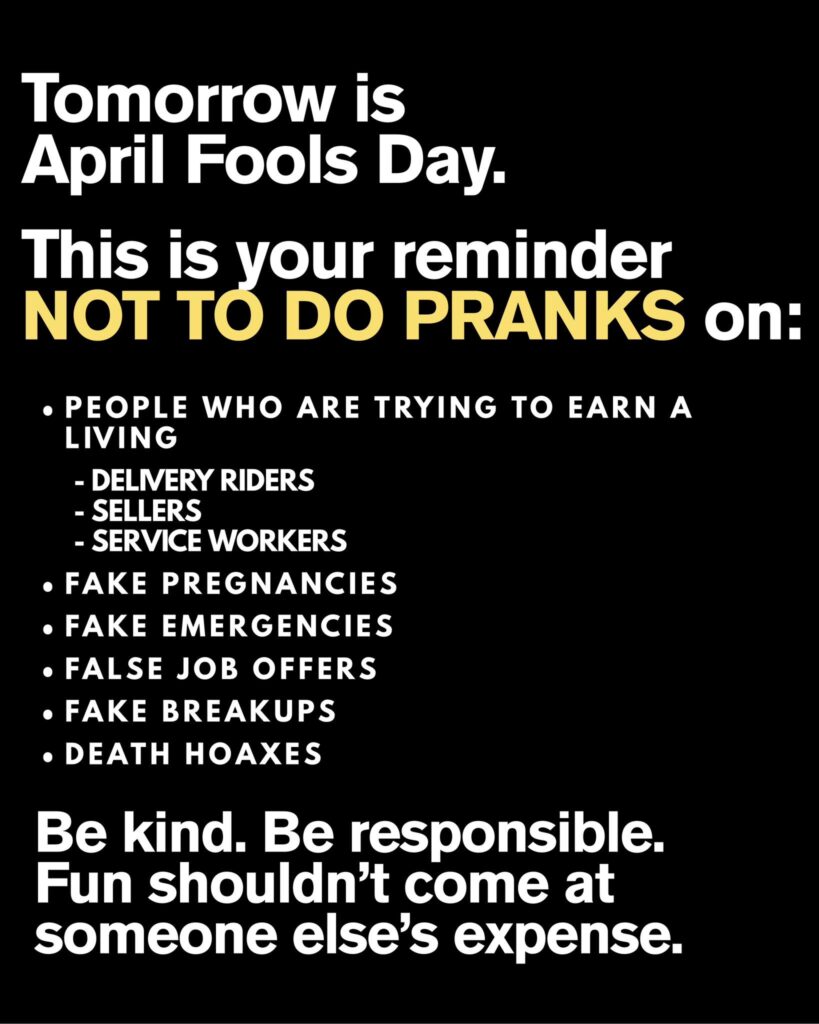
Have a good April Fools’ Day tomorrow, but be mindful about your pranking.

Have a good April Fools’ Day tomorrow, but be mindful about your pranking.
As I’ve written before, I sometimes browse Facebook Marketplace for nothing more than pure entertainment, because it always has gems that make me laugh out loud.
Case in point: take a look at the posting below for a laptop for sale recently posted in Tampa Bay’s Facebook Marketplace:

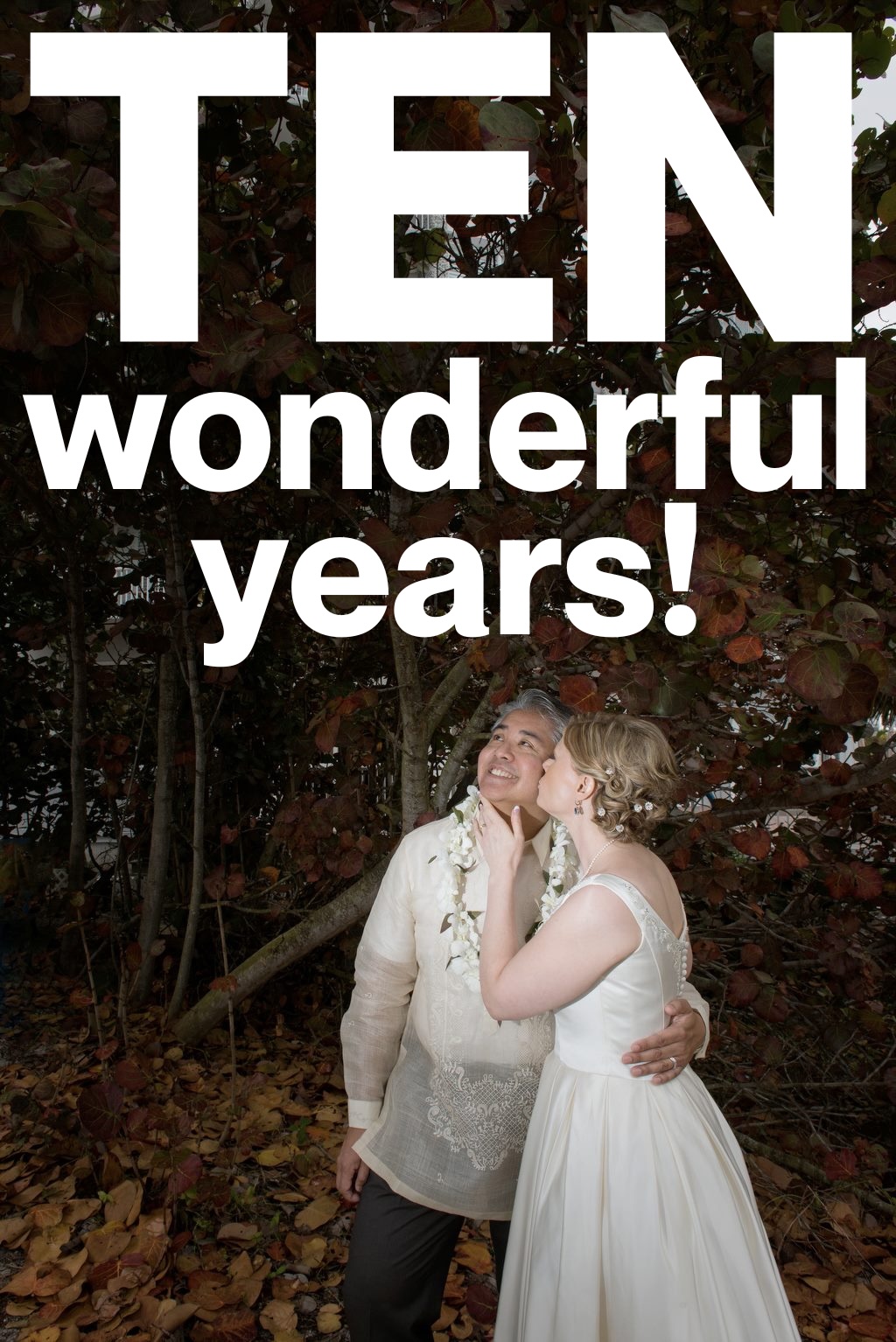
Ten years ago today, this happened:

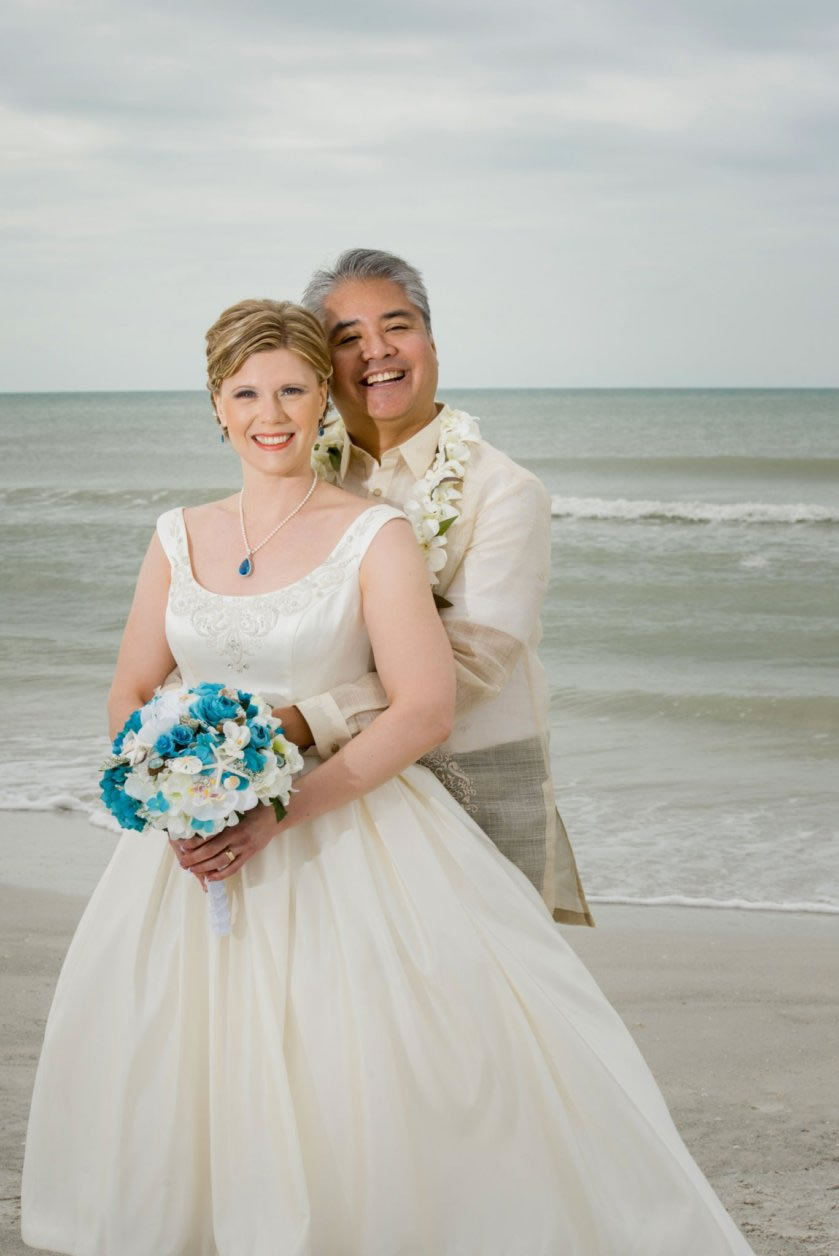
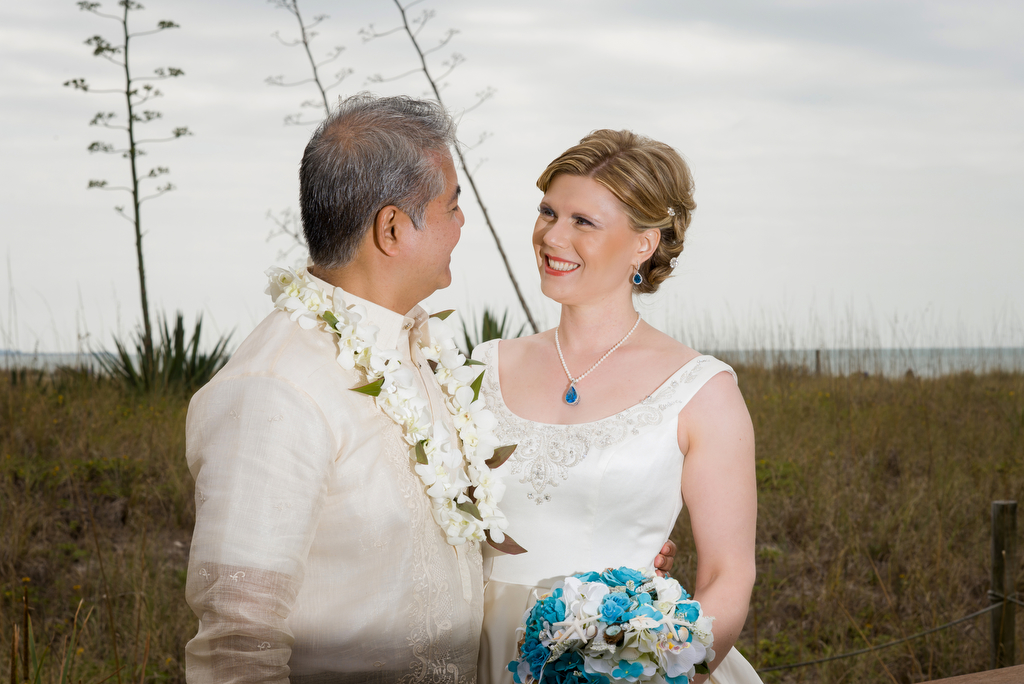
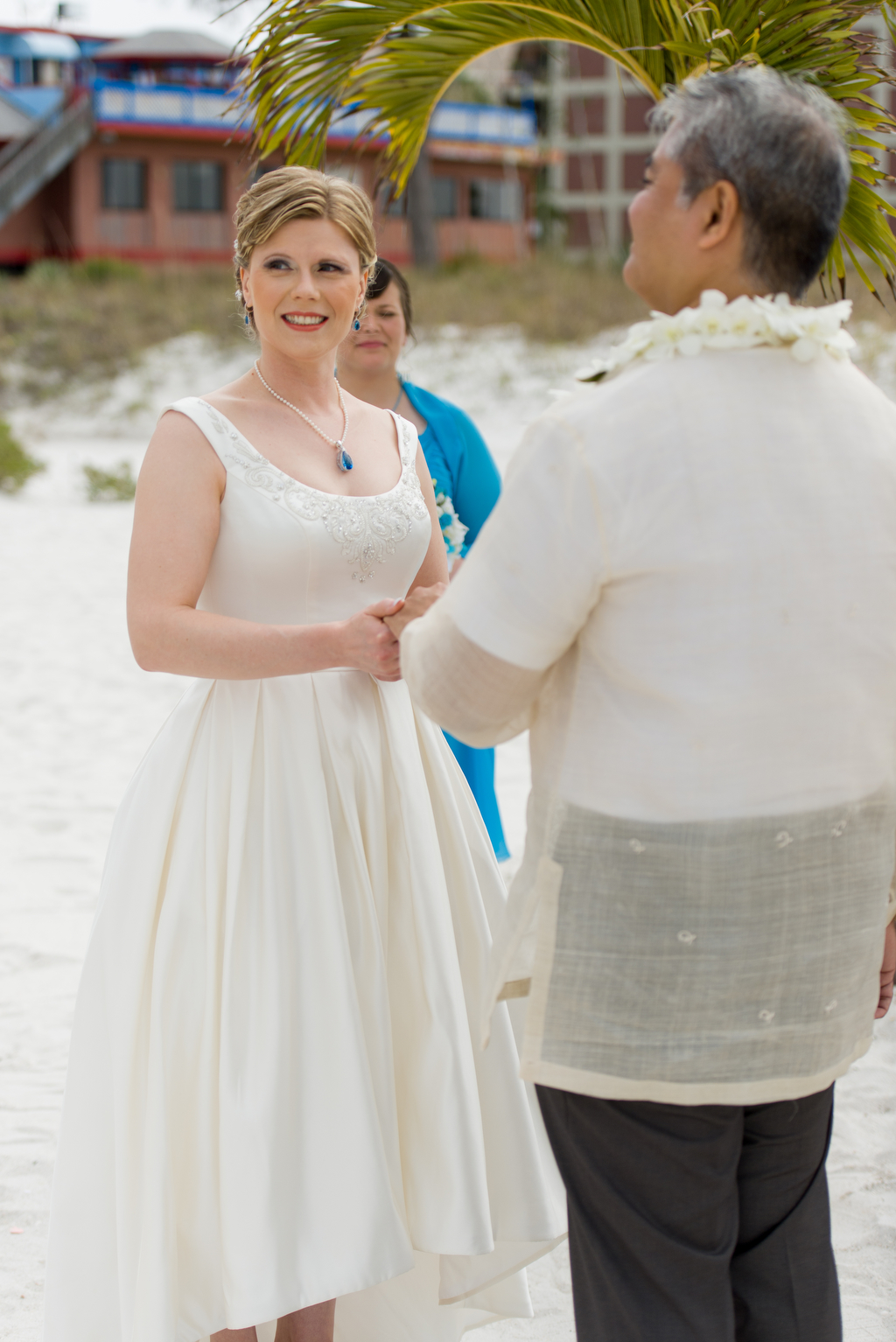



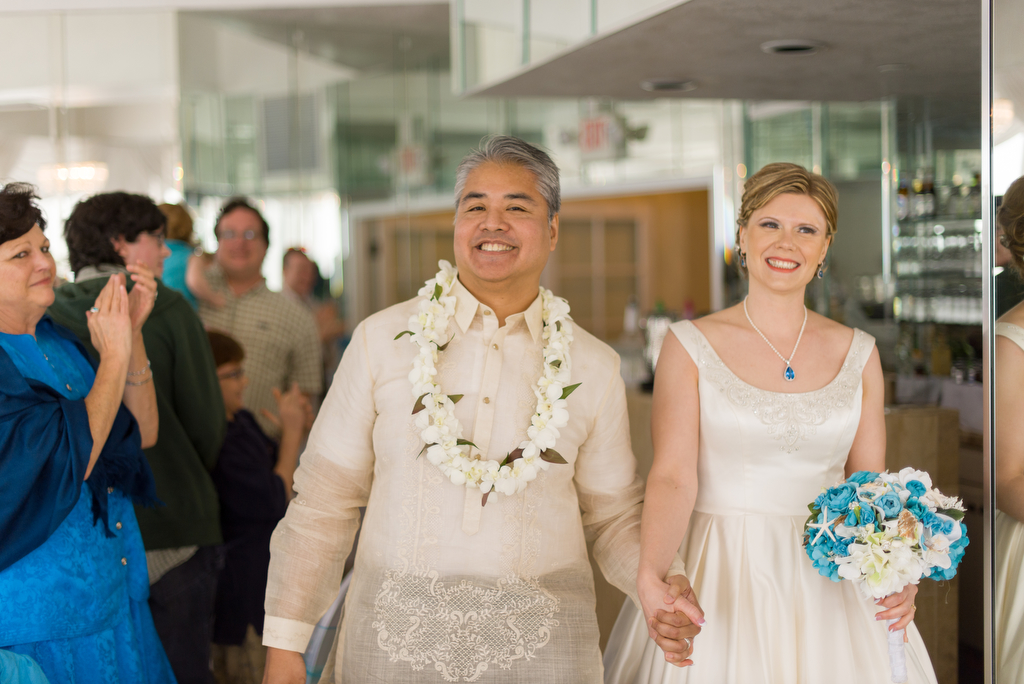





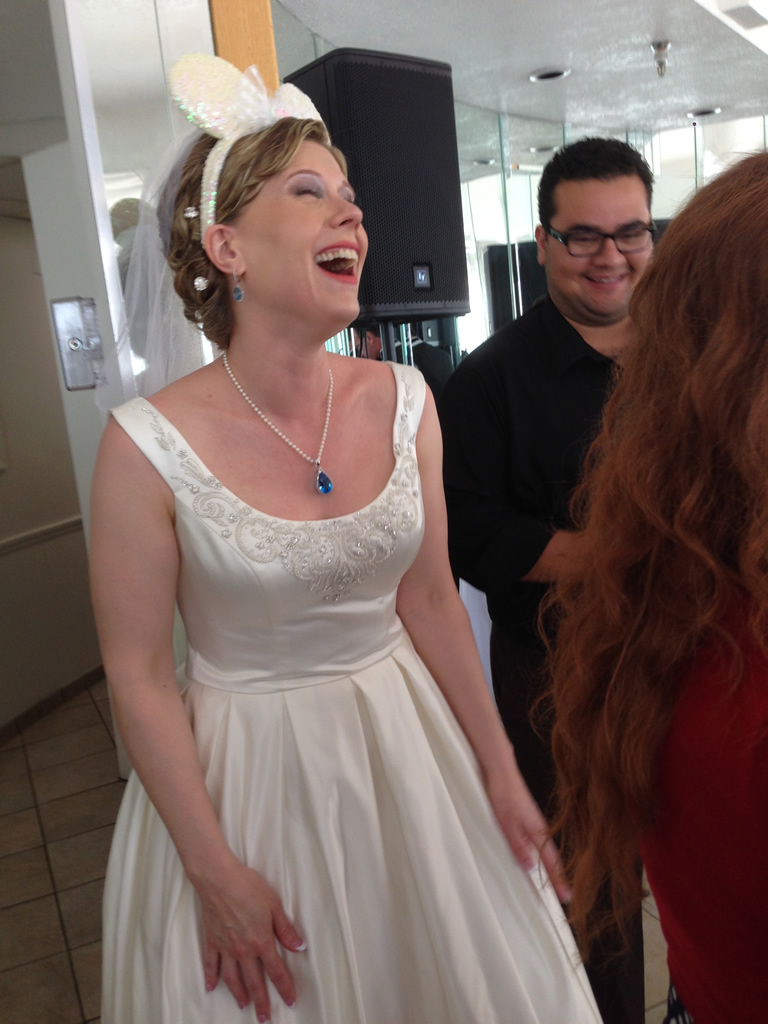
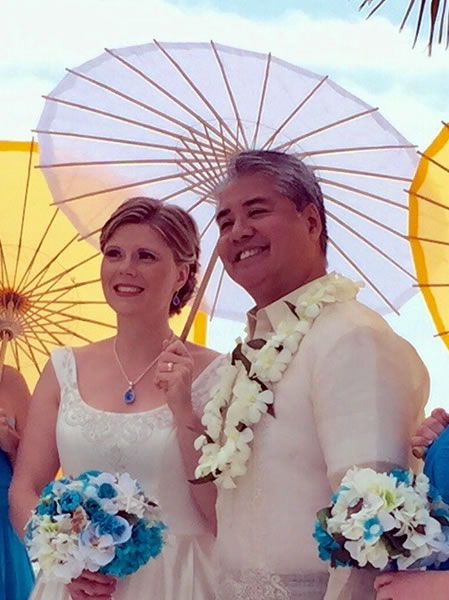
And since that day, it’s been an adventure. Thank you so much, Anitra, for joining me on this crazy trip, and thank you for ten wonderful years!

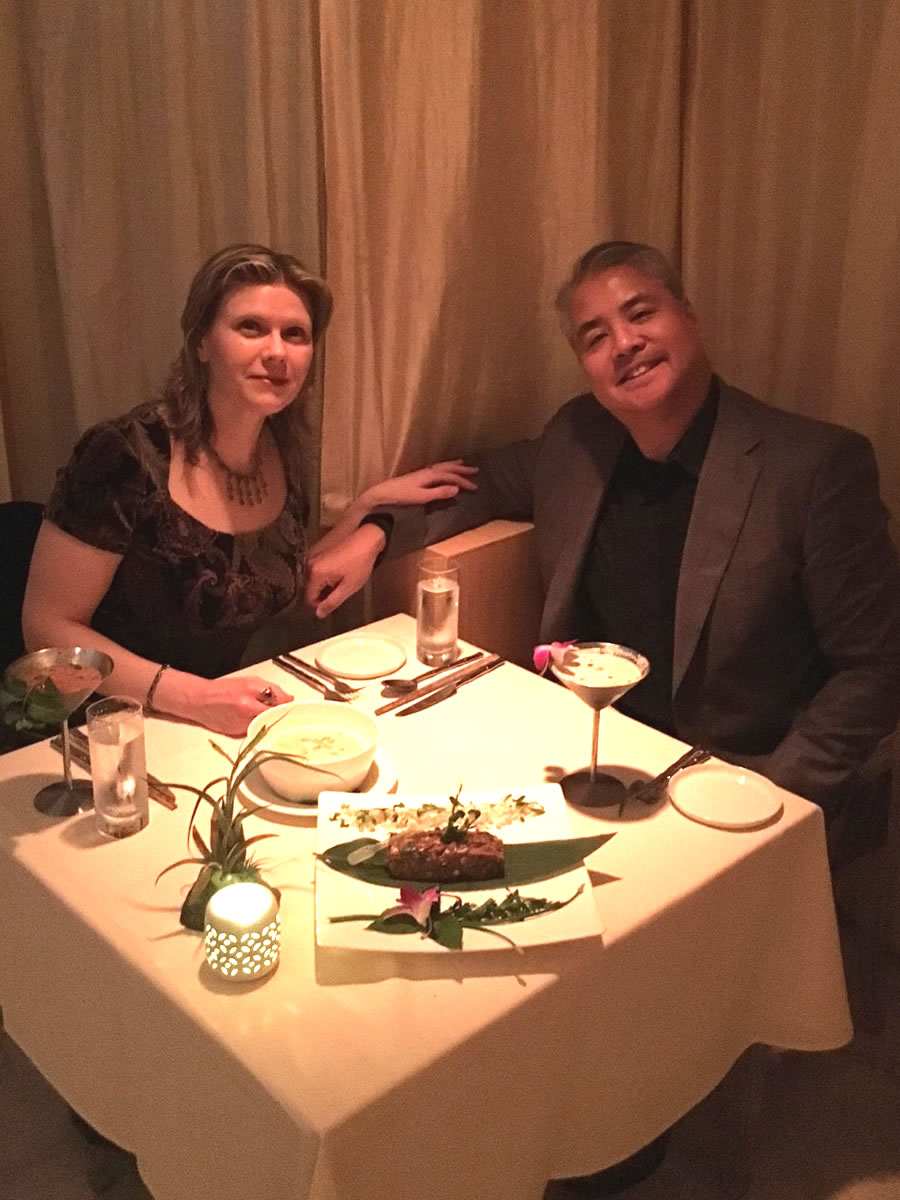


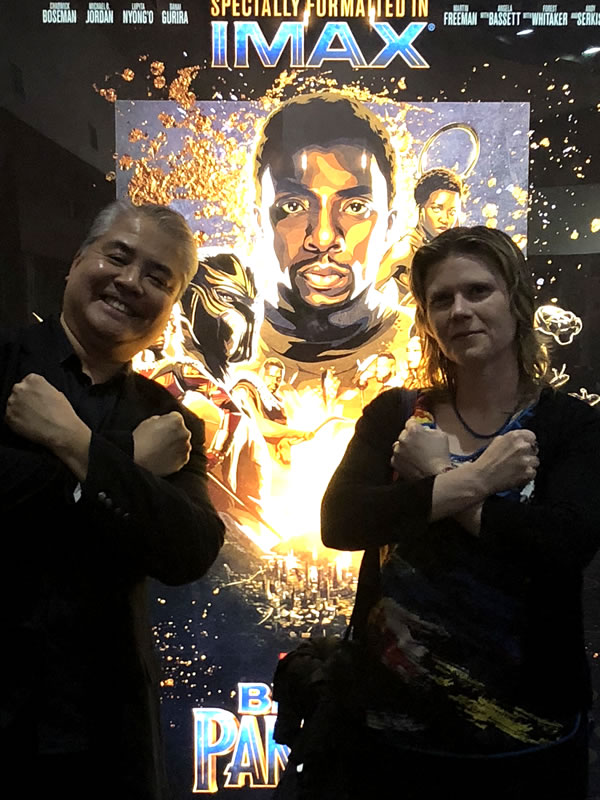



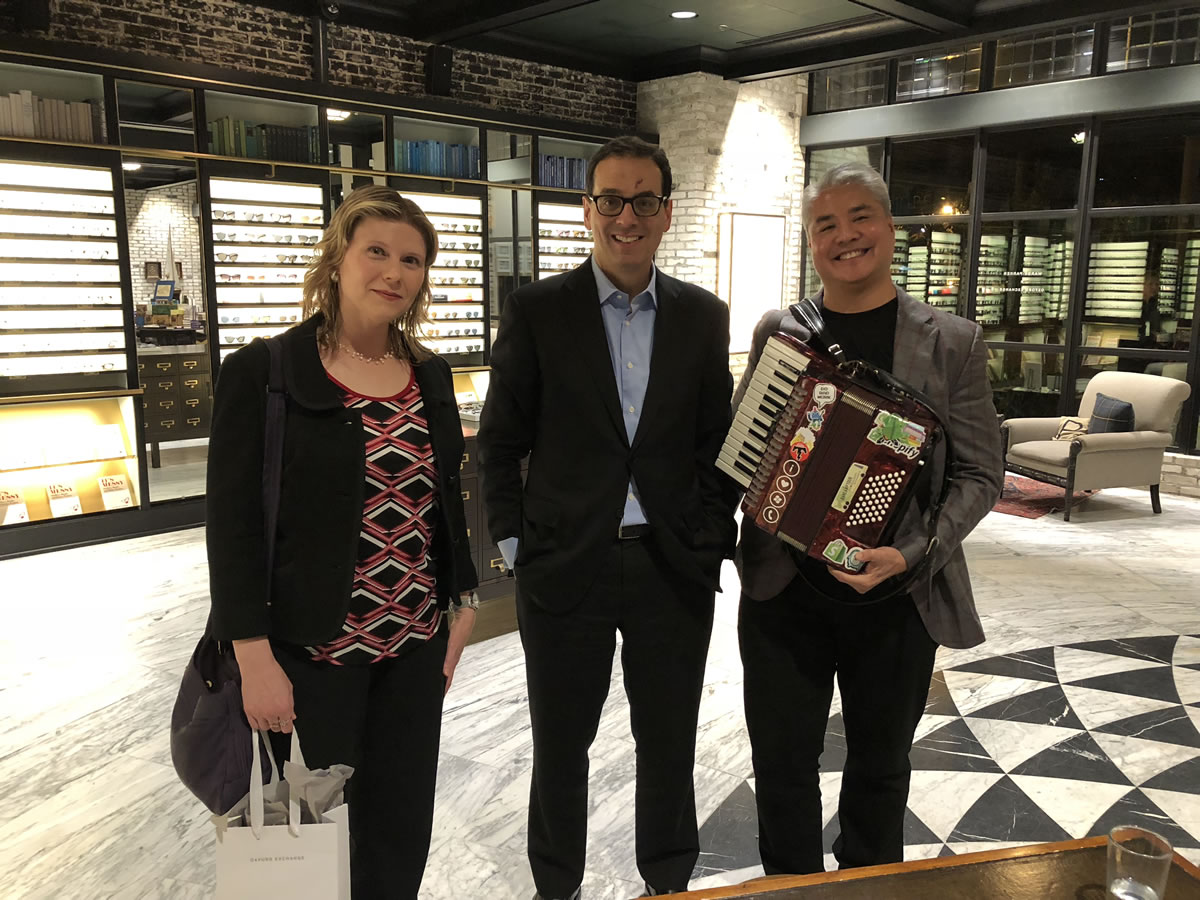



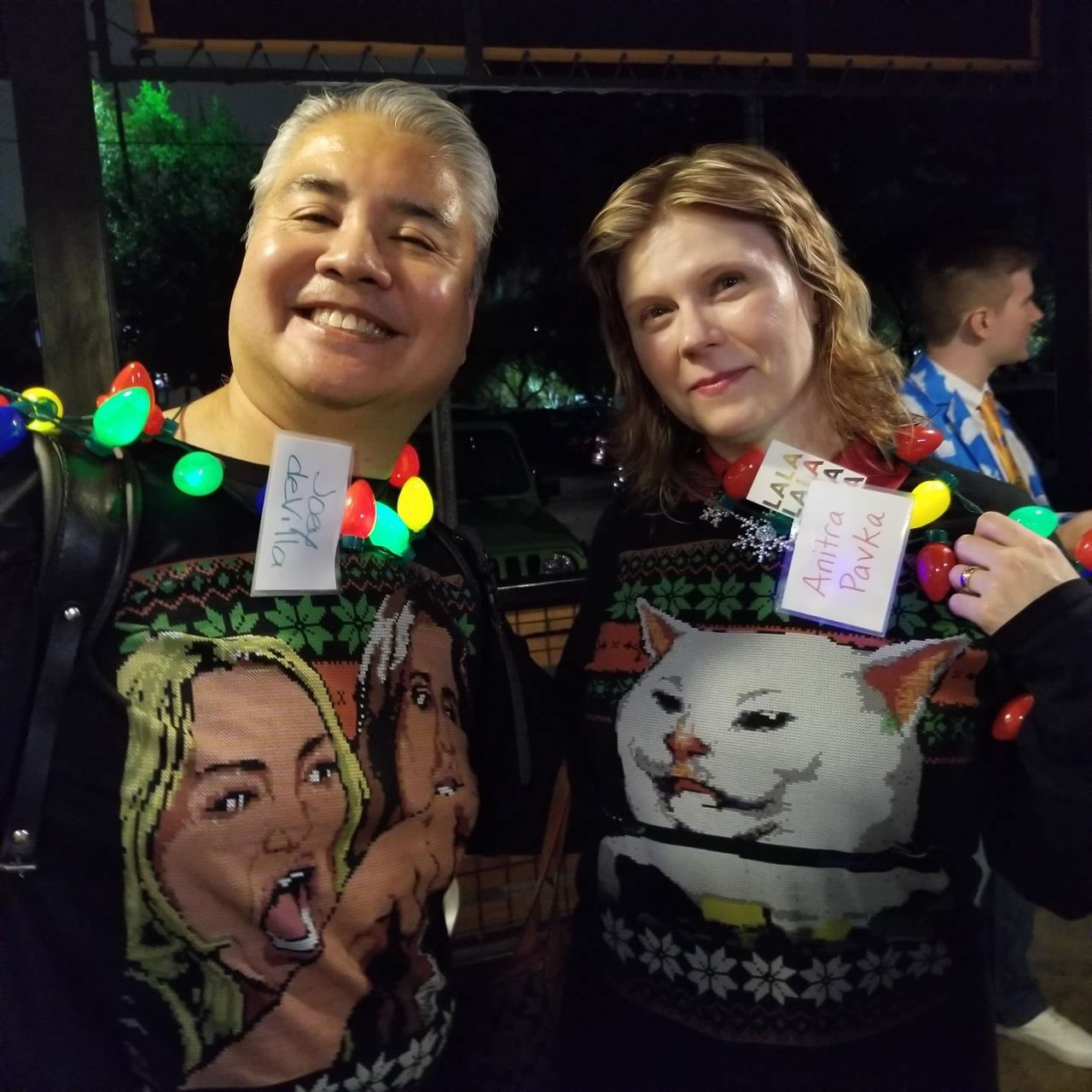
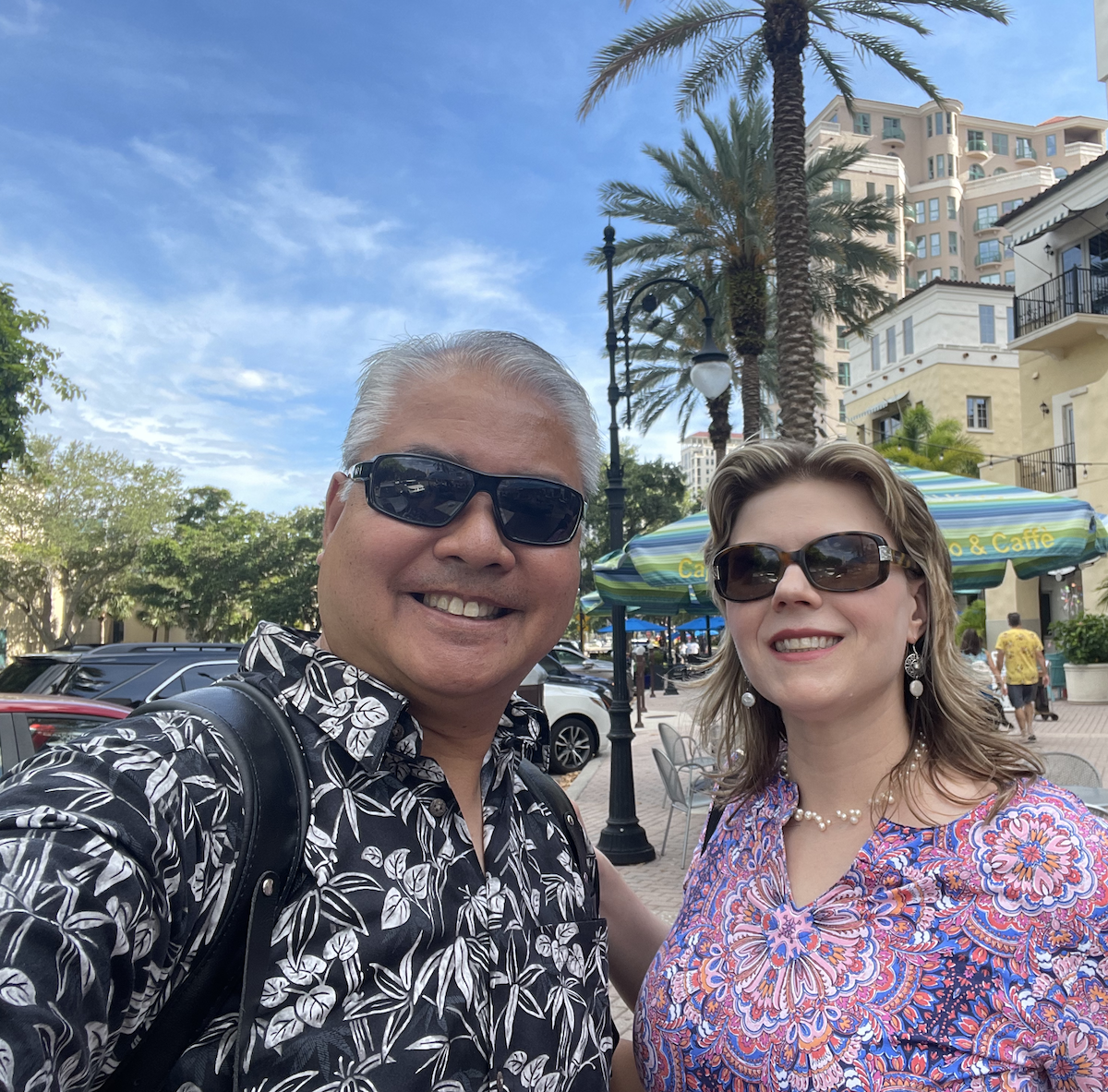


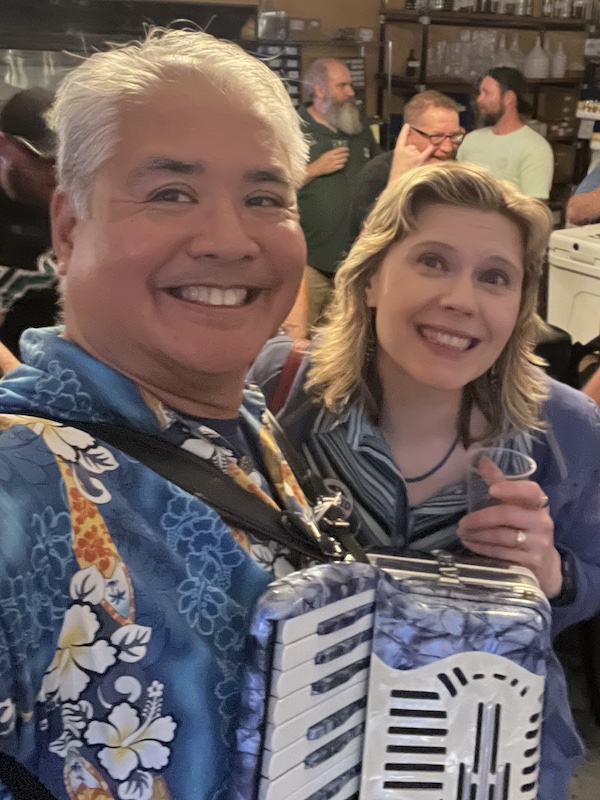




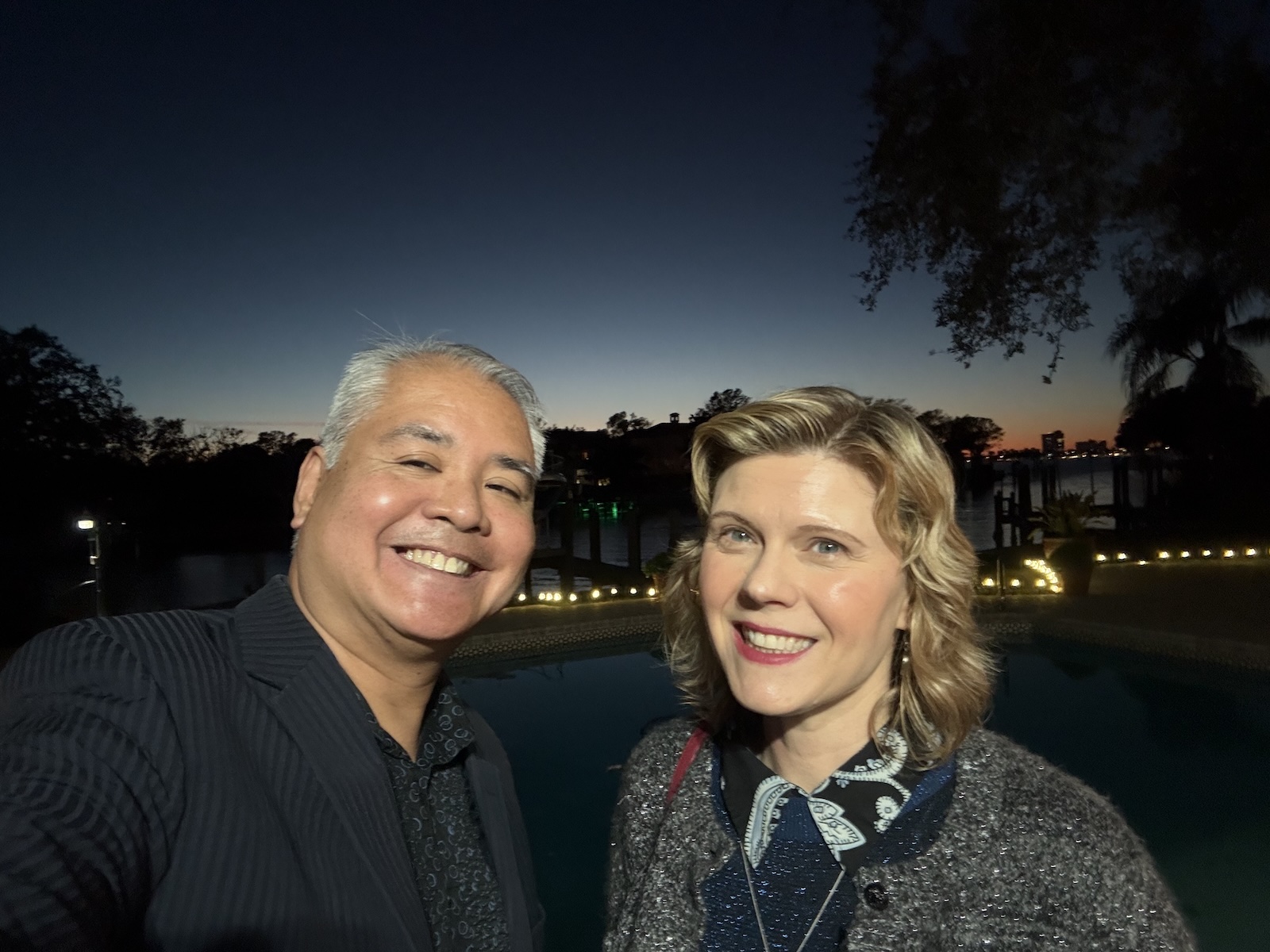


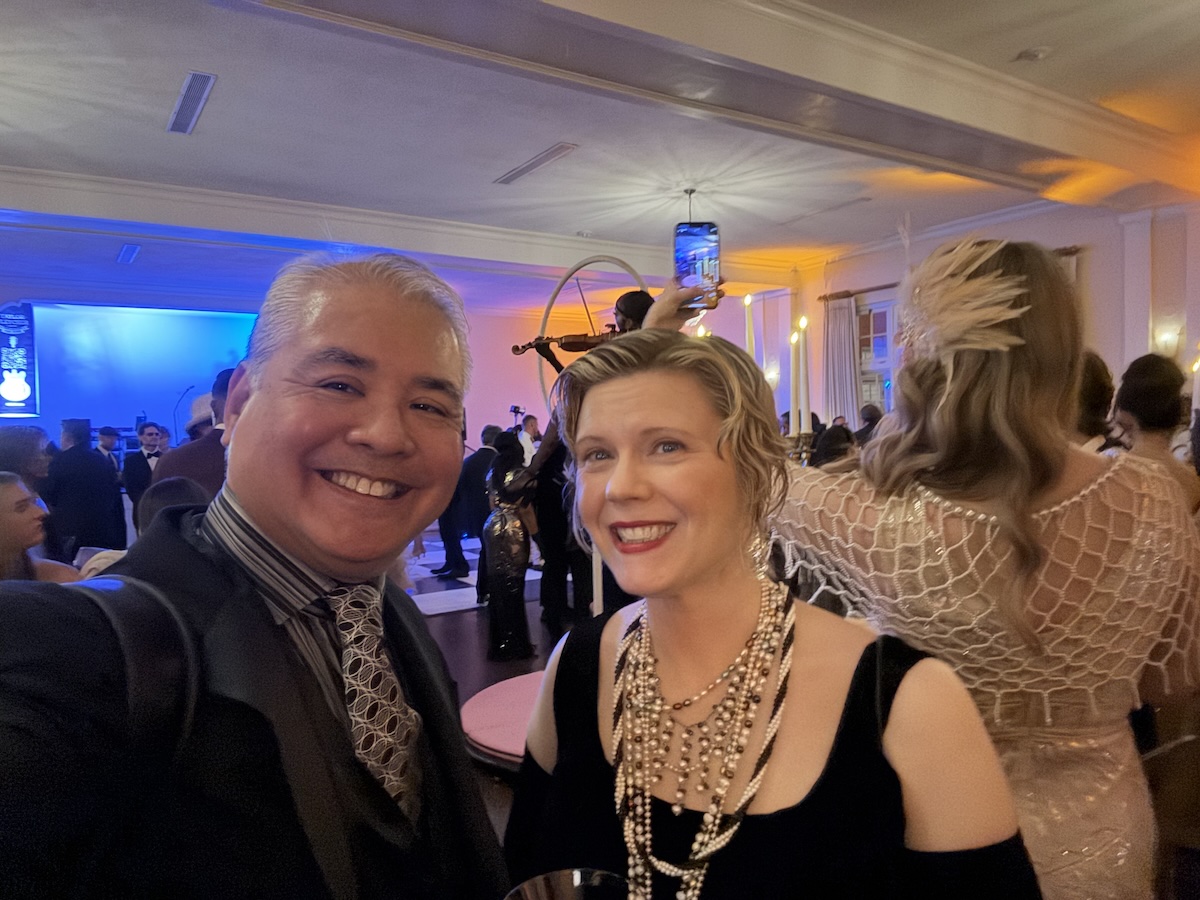

Have a great Valentine’s Day, everybody.
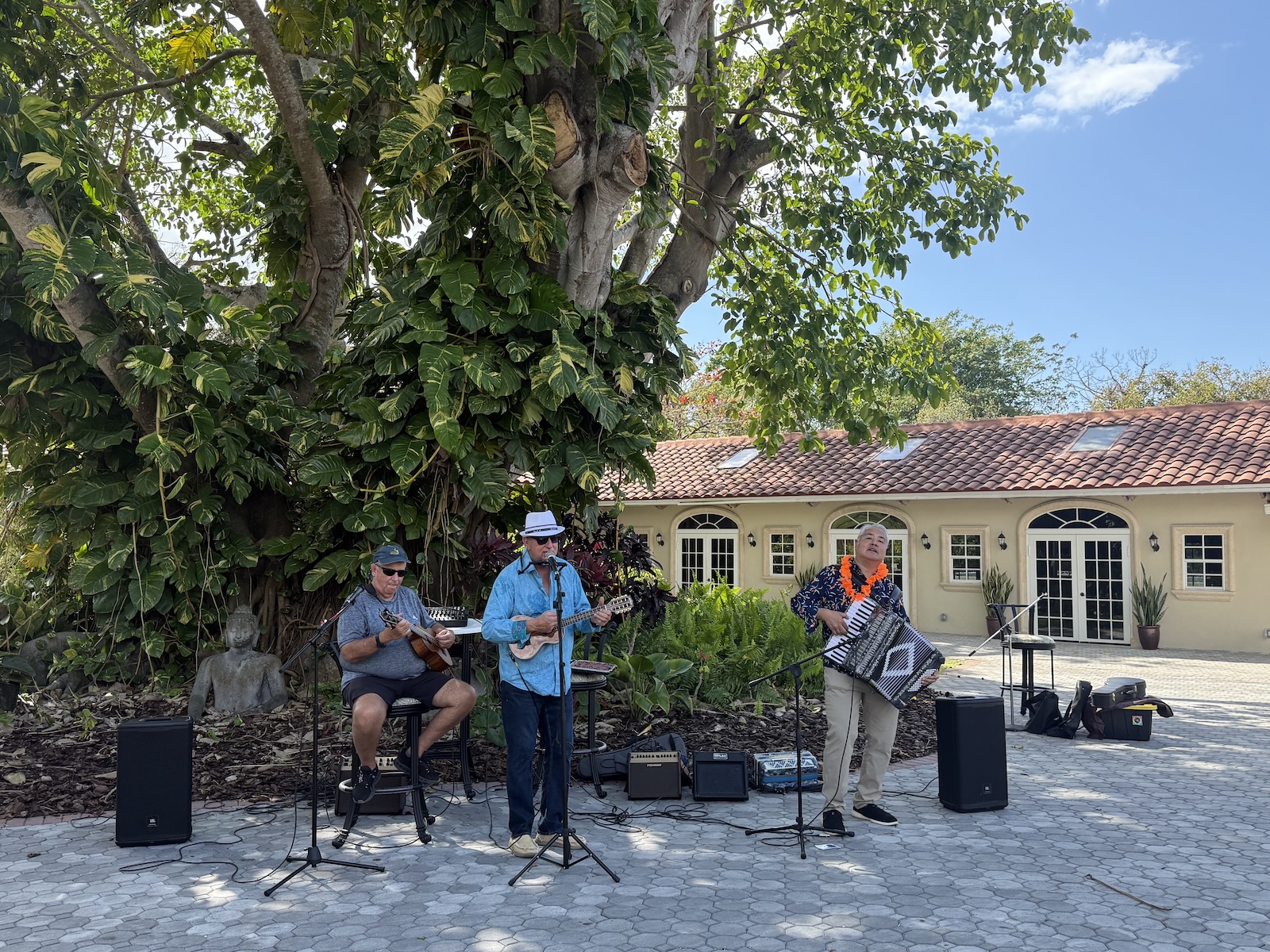
It’s been over a year since I’ve played with Tom Hood’s band, the Tropical Sons. 2024 was an unusually busy year for me, with a month-long trip to Asia, then getting laid off and having to kick my side hustle consultancy into my main gig (which is still ongoing), followed by other things ranging from my mom’s 80th birthday to hurricanes.

A couple of weeks ago, I got a text from Tom, asking how I was, and if I’d like to make the drive down to Bonita Springs to play a gig as part of their first annual World Ukulele Day. I’m not a uke player, but Tom is, and as the bandleader and President of the Tampa Bay Ukulele Society, he’s “ukulele” enough for the rest of the band to count.
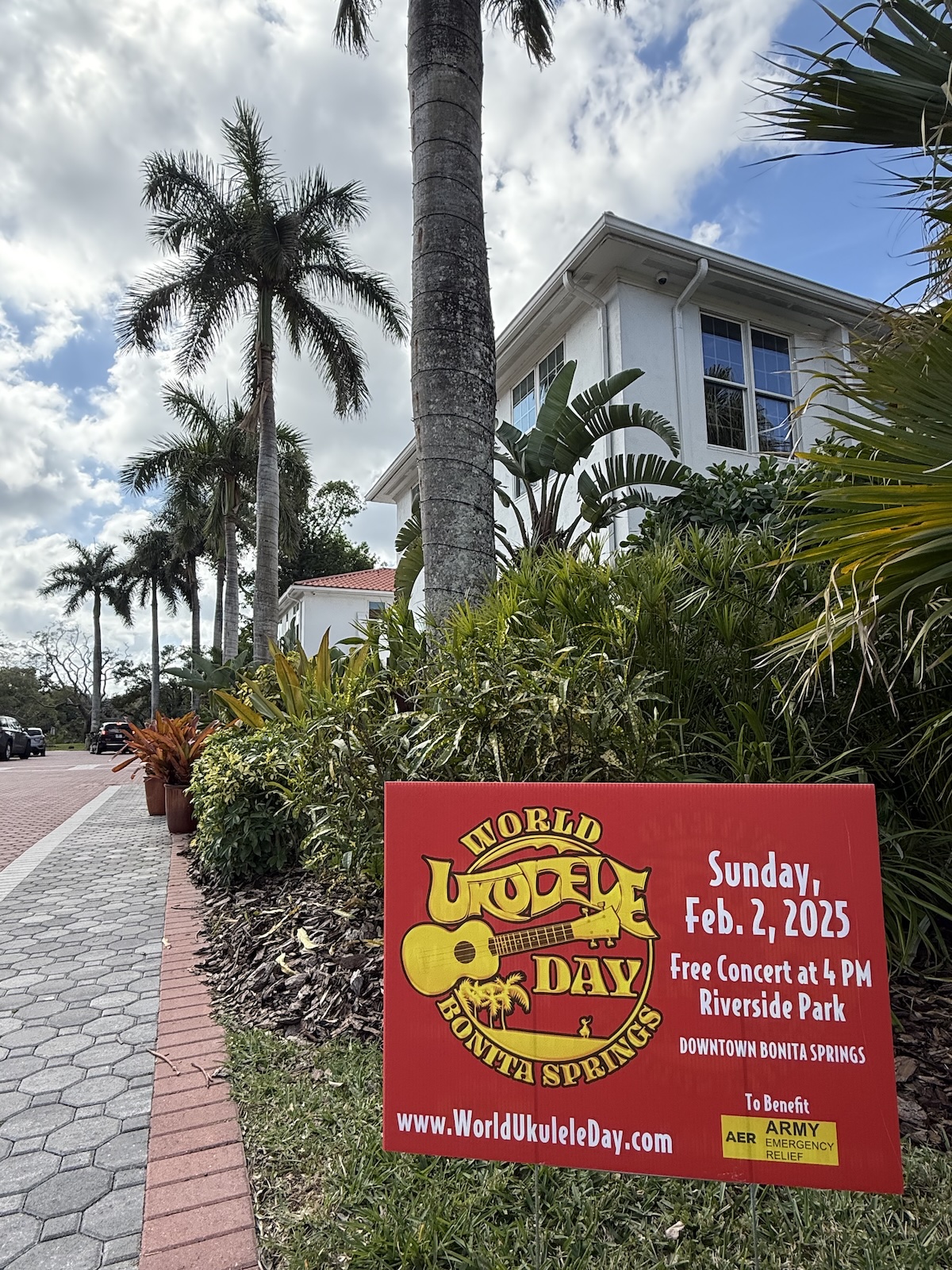
Since neither Anitra nor I had been to Bonita Springs before, and my cut of the gig money would easily cover gas and a nice dinner, she joined me last Sunday for the two-and-a-half hour drive to the Shangri-La Springs hotel, where the gig was to take place.
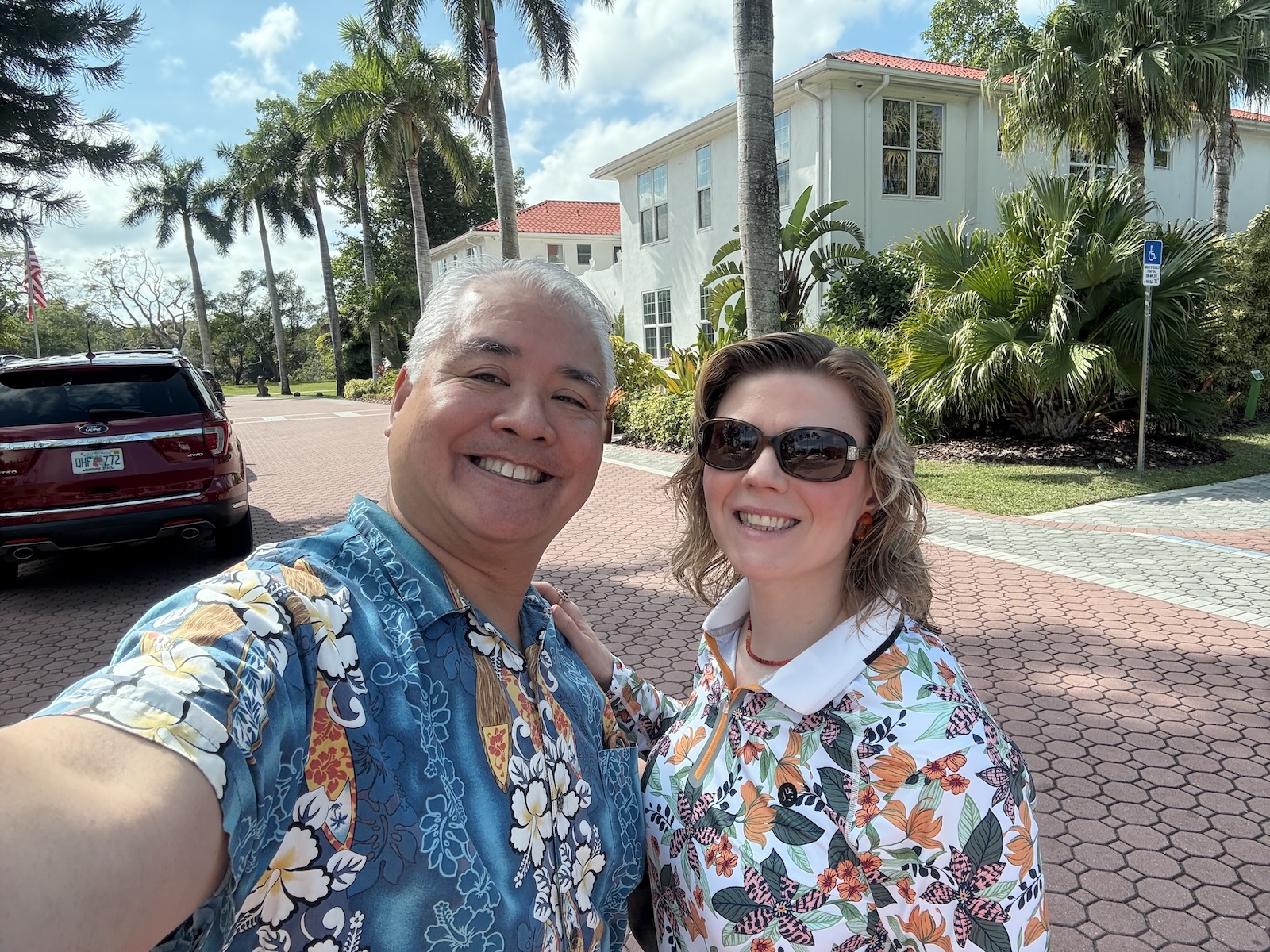
Following the Code of the Good Bandmate, I arrived an hour ahead of the gig with my gear — accordions, microphone, mic stand, amplifier, assorted audio and power cords — at the ready. I got set up quickly, and there was plenty of time to get a nice brunch at their restaurant, Harvest & Wisdom, before the gig…

…but alas, a mix-up in the kitchen left us waiting for breakfast for 45 minutes. By the time they got things straightened out, it was time for me to hit the stage. I quickly had a little bit of my food before our first number.
Anitra explained what happened to the staff at the restaurant, and to their credit, they “comped” us as an apology for making us wait unreasonably long and causing me to miss out before the performance. They put my breakfast in a take-out box (see the pic above), and I managed to tuck into it during the break after our first set.
Delay aside, it was really good. I had the key lime pancakes with a side of sausage patties (see above), and they were buttery with a cake-y texture and downright delicious.
Anitra had a macadamia/coconut waffle (see above) that was also tasty. Both were keto-friendly and gluten-free, which was great, since we like to share food, and one of us has a wheat allergy.
Mild annoyance of our delayed breakfast aside, I’d gladly eat at Harvest & Wisdom again — their menu is interesting, and their food is really good!
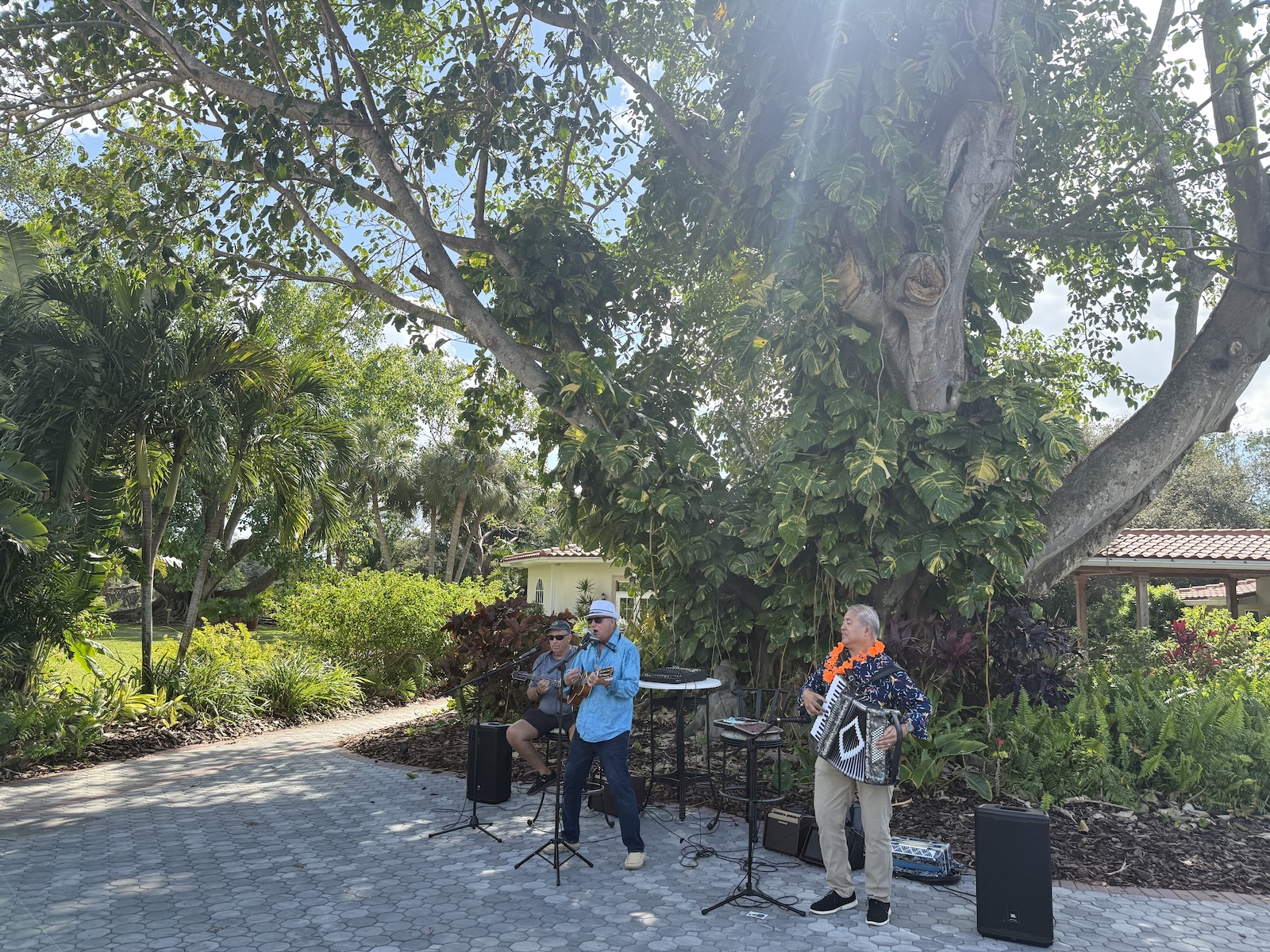
As for the gig, it went well. Despite not having played with the band — Tom Hood on vocals, ukulele, and harmonica, Dave Helm on bass and vocals — we easily meshed together, sounded good, and had a lot of fun.
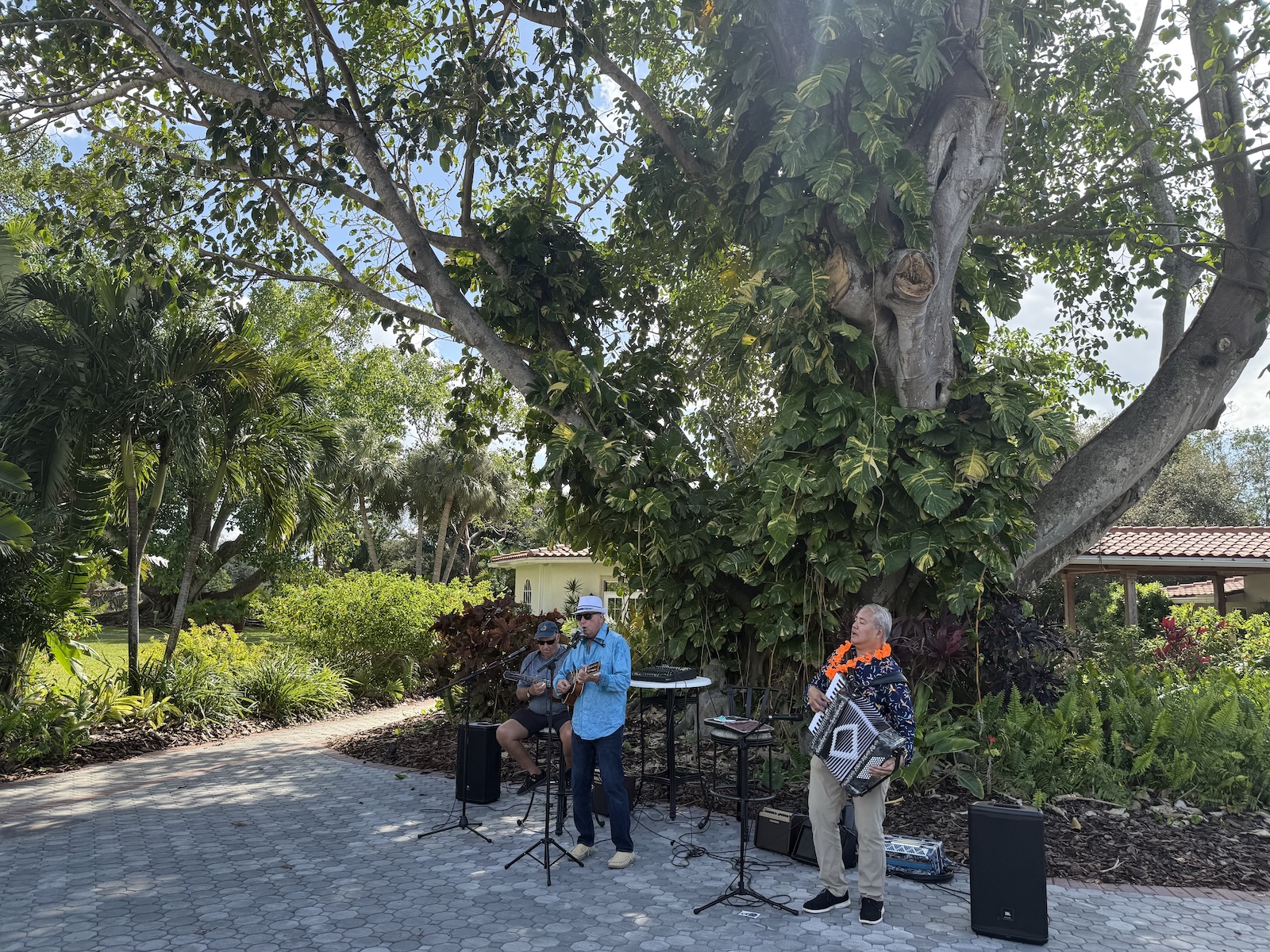
I’ve already been invited to join the Tropical Sons for Tampa Bay Ukulele Days 2025, which happens on the weekend of March 21 – 23.
Here are some photos and video from the gig:
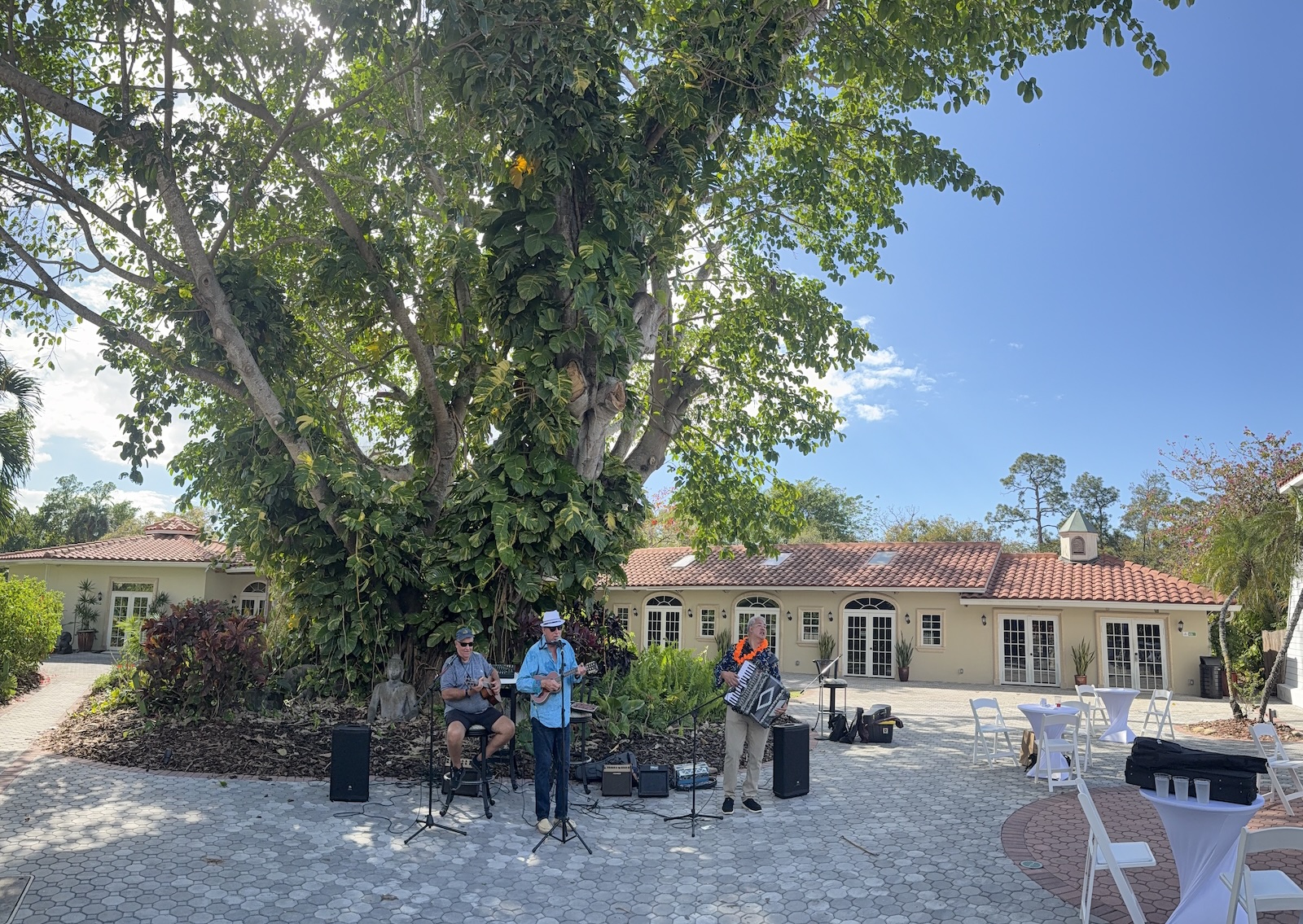
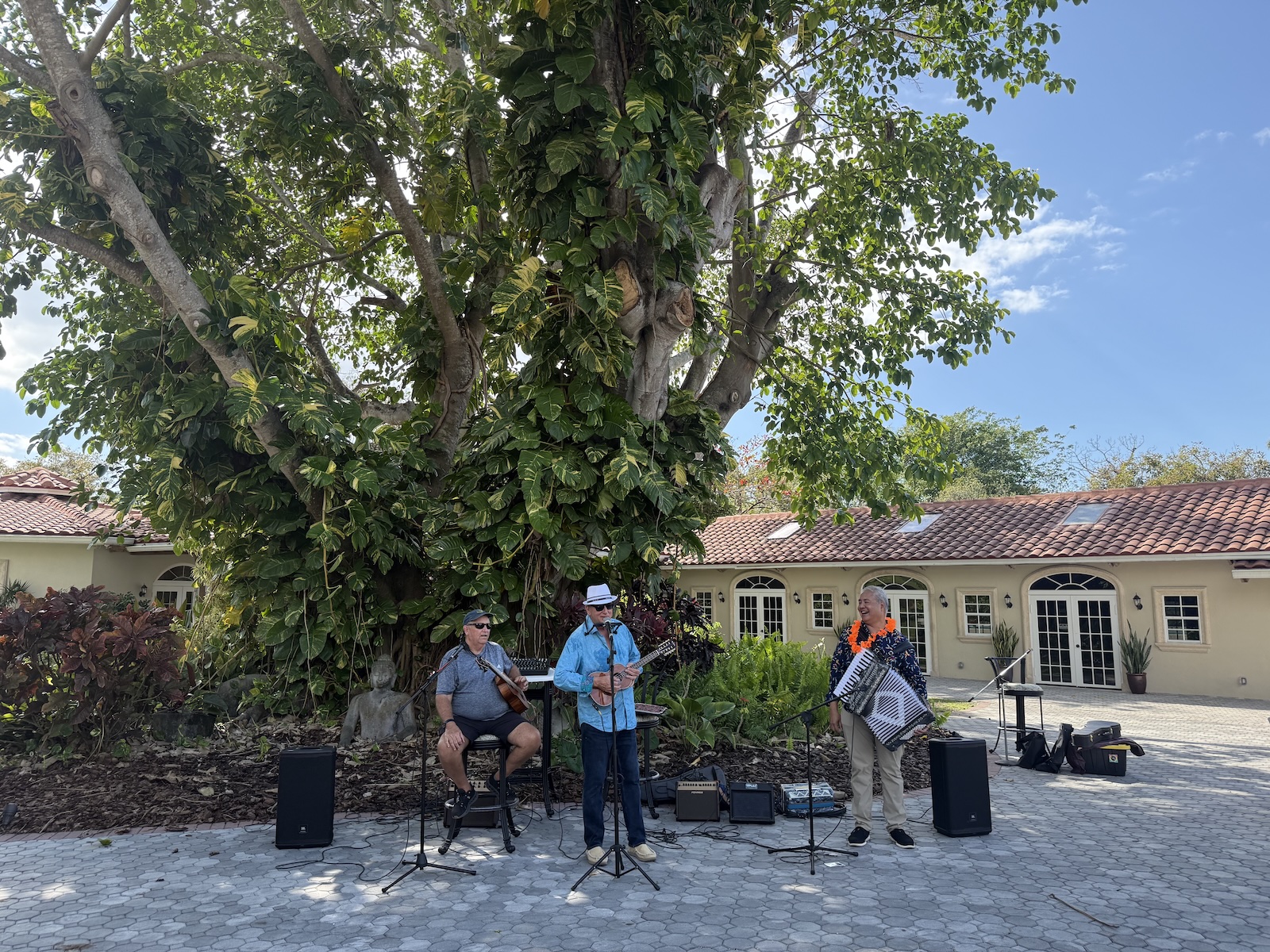
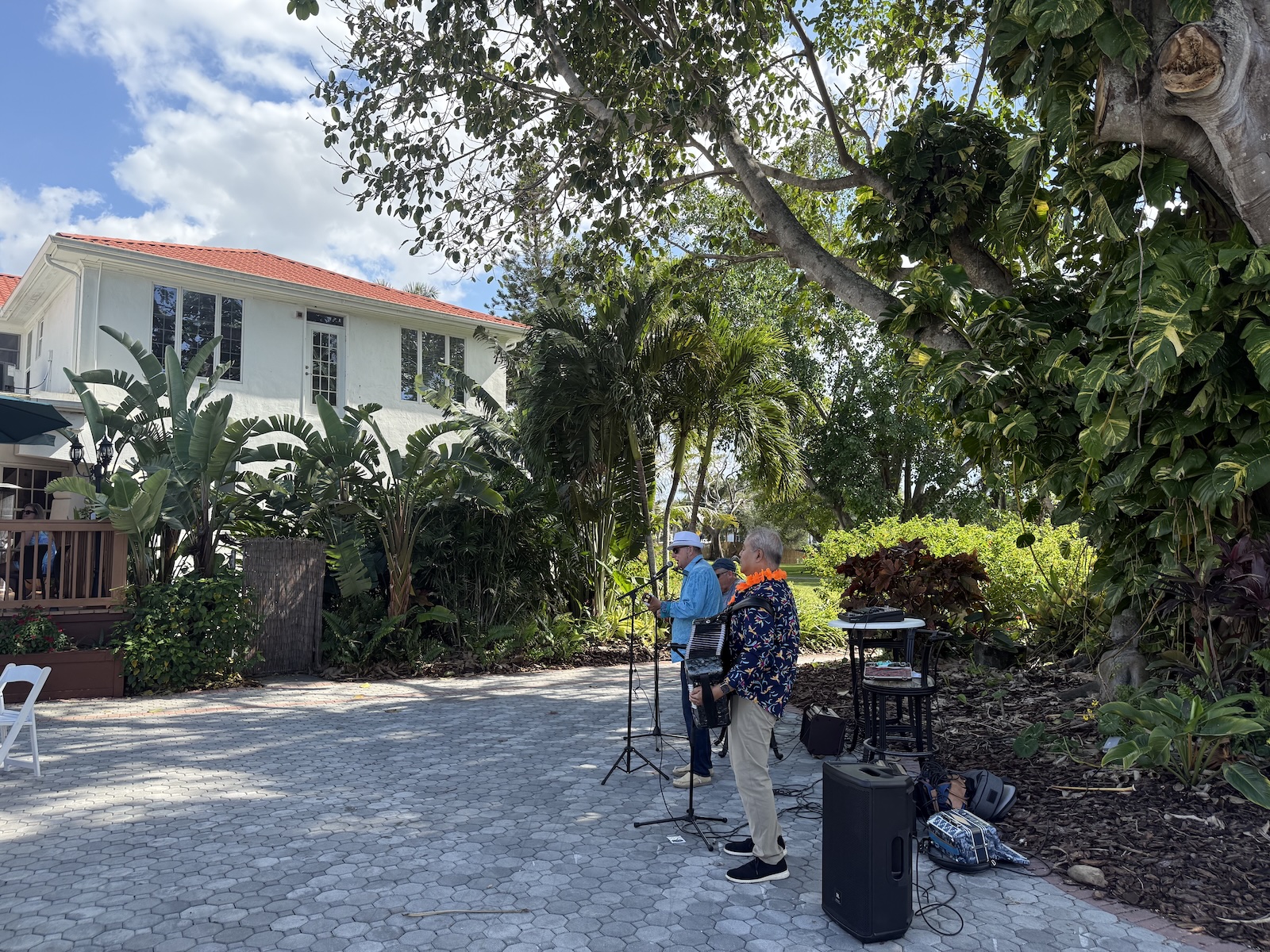
My thanks to Anitra for taking the photos and video!
Here’s the main course for dinner tonight…
…and that’s because it’s January 25th today, making tonight Burns Night, the night when we celebrate the birth of Scottish poet Robert Burns:
 Haggis is a kind of sausage, in that it only sounds bad when you describe what goes into it: “a savory pudding containing sheep’s pluck (heart, liver, and lungs), minced with chopped onion, oatmeal, suet, spices, and salt, mixed with stock, and cooked while traditionally encased in the animal’s stomach” (although in modern times, it’s encased in sausage casing).
Haggis is a kind of sausage, in that it only sounds bad when you describe what goes into it: “a savory pudding containing sheep’s pluck (heart, liver, and lungs), minced with chopped onion, oatmeal, suet, spices, and salt, mixed with stock, and cooked while traditionally encased in the animal’s stomach” (although in modern times, it’s encased in sausage casing).
It’s actually delicious, and it’s typically served this way…
…and in case you were wondering, tatties are potatoes, neeps are turnips, and yes, there’s scotch on the side. I also plan to make a whiskey sauce to pour on everything.
And finally, since sausage is for dinner, it’s only fitting that sausage is also for dessert:
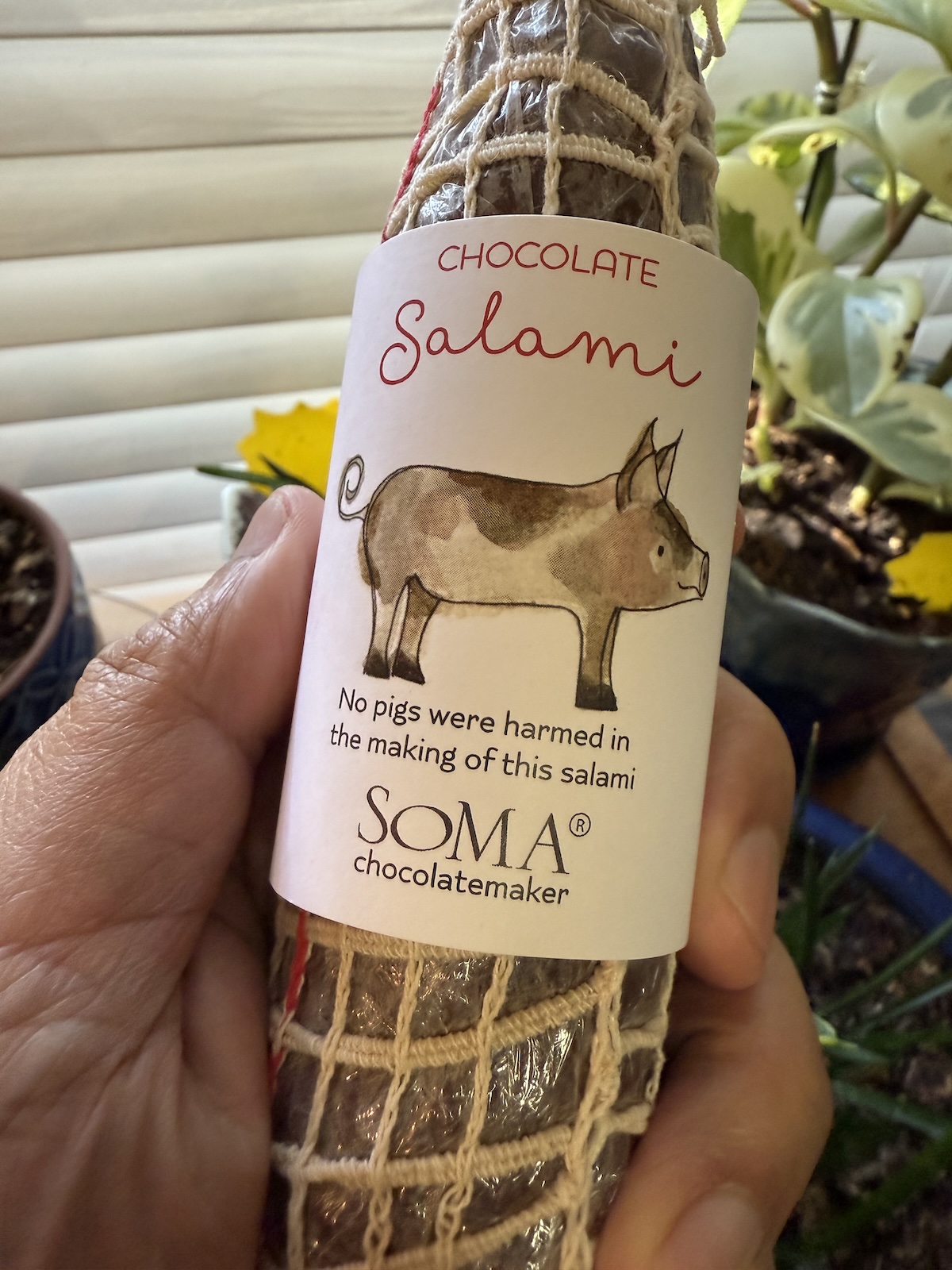 This is Chocolate Salami, from Toronto chocolatier Soma, which is a “sausage” made of chocolate, candied orange peel, sun dried cherries, pieces of feuilletine (crispy flakes of caramelized crêpes), coconut, almonds, hazelnuts, nibs and rum.
This is Chocolate Salami, from Toronto chocolatier Soma, which is a “sausage” made of chocolate, candied orange peel, sun dried cherries, pieces of feuilletine (crispy flakes of caramelized crêpes), coconut, almonds, hazelnuts, nibs and rum.
Here’s what it looks like when sliced:
 We’ll probably start dinner with this reading of Robbie Burns’ famous poem, Address to a Haggis, delivered with the proper gusto by true Scotsman Cameron Goodall:
We’ll probably start dinner with this reading of Robbie Burns’ famous poem, Address to a Haggis, delivered with the proper gusto by true Scotsman Cameron Goodall:
My friends in my old home town, Toronto, won’t find Tampa’s current temperatures cold, but by local standards, it’s downright frigid.
The past couple of mornings have started at a temperature that Torontonians would consider balmy this time of year: 4°C (39°F). With Tampa’s humidity typically in the 90% range, it feels more like 0°C (32°F). I pulled out the olive drab puffy vest that my Dad gave to me as a Christmas gift ages ago — he had a thing for giving me warm clothing — and snapped the photo above to let my Mom know how I’m doing.
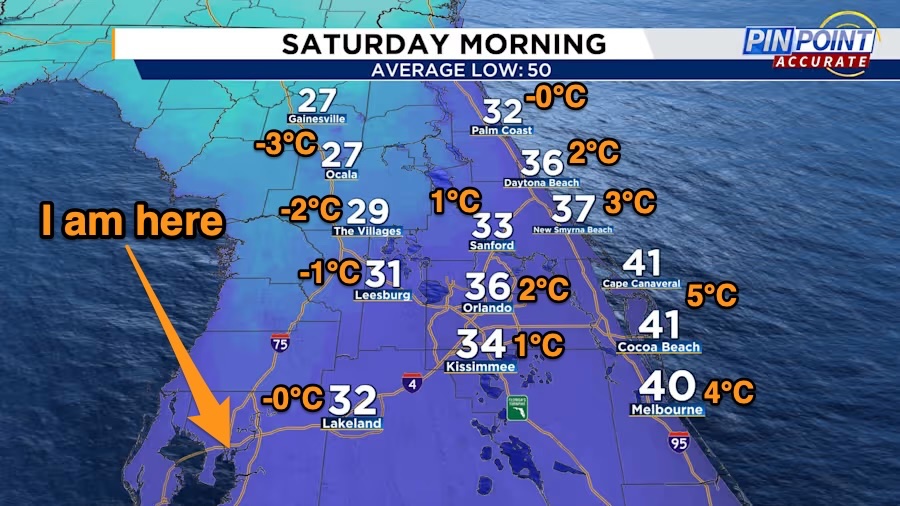
It looks like it’s going to get a little colder this weekend, which is going to be a challenge for the sizable portion of the local population that’s perpetually in shorts and flip-flops.
But at least it isn’t snowing in Tampa…